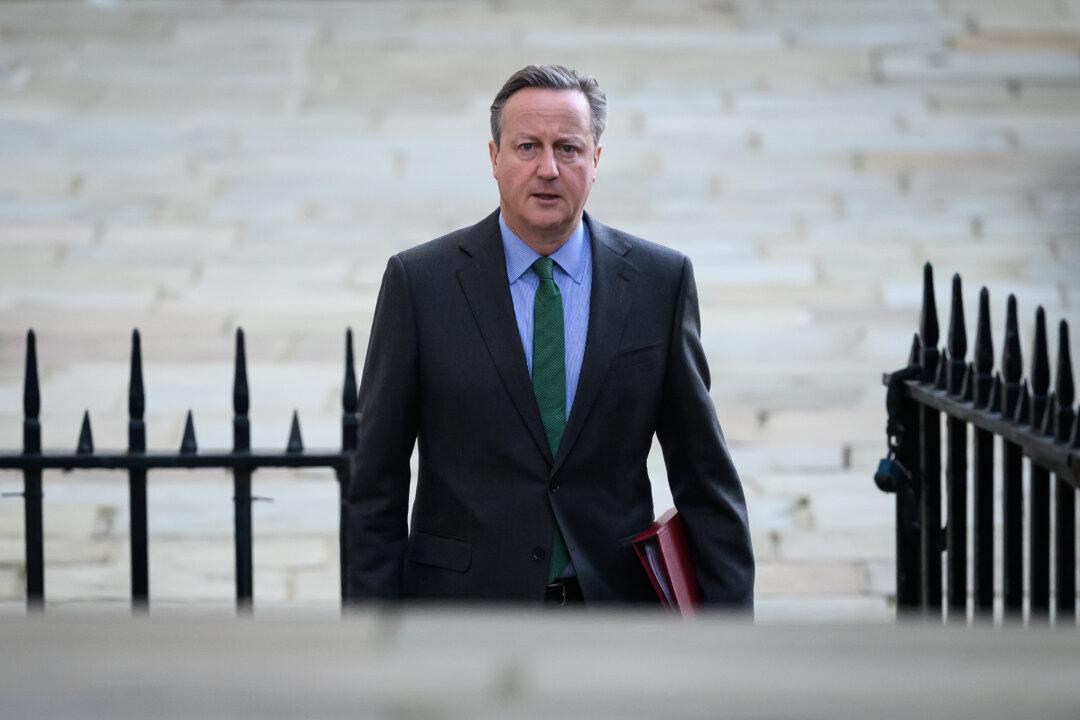British Foreign Secretary Lord Cameron has “strongly” urged the authorities in Hong Kong to reconsider its proposal to pass its own national security law.
Lord Cameron said vague and broadly defined terms in the proposed legislation will inhibit freedom of speech, expression, and the press, and threaten international organisations as well as diplomats.
Article 23, outlined in Hong Kong’s Basic Law enacted after its handover from British rule in 1997, mandated that Hong Kong write its own national security code. An attempt to do so in 2003 led to massive protests, leading the government to shelve the proposal.
After pro-democracy protests brought hundreds of thousands of Hongkongers to the streets in 2019, Beijing imposed a national security law to punish four major crimes: secession, subversion, terrorism, and collusion with foreign forces.
Now, under an administration hand-picked by the Chinese Communist Party (CCP), Hong Kong is once again looking to pass Article 23, which authorities say will fill loopholes left by the national security law. A four-week comment period will precede a vote on the law by Hong Kong’s Beijing-aligned Legislature.
The new national security law will cover five offences: treason, insurrection, theft of state secrets and espionage, destructive activities endangering national security, and external interference.
The newly added ordinance on “external interference” will prohibit any person from cooperating with foreign powers to interfere with Hong Kong’s elections, Legislature, and judiciary.
In a statement published on Wednesday, Lord Cameron said the UK, as a signatory of the Sino–British Joint Declaration, recognises Hong Kong’s obligation to introduce legislation on national security, but the proposals published by the authorities do not meet the requirement in the declaration for it to align with international standards and uphold rights and freedoms.
“They will have a negative impact on the people of Hong Kong in the exercise of their rights and freedoms,” Lord Cameron said.
In an non-exhaustive list of concerns, the foreign secretary said, “The toughening of penalties for speech crimes and the use of the broadly defined term ‘state secrets’ will inhibit freedom of speech, of expression and of the press.”
Works of international organisations in Hong Kong risk being labelled as “foreign interference,” he said, adding that “vague references to ‘external forces’ and the new offence of ‘external interference’ threaten the legitimate and lawful diplomatic and consular activity.”
The proposals also lack “any reference to independent oversight,” “mechanisms to safeguard against arbitrary action by the executive on national security grounds,” and “clarity on the procedures that will govern detention without charge,” the statement says.
Lord Cameron said British officials have raised concerns both privately and through the public consultation process, and noted that the UK’s national security legislation, by contrast, “is informed by public consultation and was subject to full scrutiny” by elected and unelected representatives in Parliament.
“I strongly urge the Hong Kong SAR government to re-consider their proposals and engage in genuine and meaningful consultation with the people of Hong Kong,” he said.
“We will monitor development of this legislation closely.”
The UK previously condemned the Beijing-imposed national security law, and called on Hong Kong authorities to repeal it, “including its extraterritorial reach, in breach of the legally binding Sino-British Joint Declaration.”
Hong Kong authorities have issued over a dozen warrants against pro-democracy activists on foreign soil, including some who live in the UK.
Each warrant came with a bounty of 1 million Hong Kong dollars (around £100,000) against them.
International human rights campaigners have been named as Mr. Lai’s “co-conspirators,” including the UK’s Luke de Pulford, executive director of the Inter-Parliamentary Alliance on China, and Benedict Rogers, CEO and co-founder of Hong Kong Watch.







